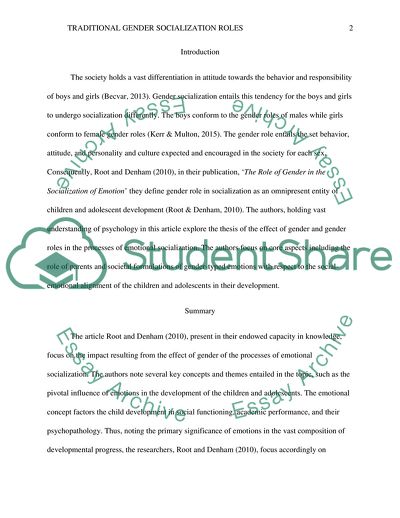Cite this document
(Negative Results of Traditional Gender Socialization Roles Article Example | Topics and Well Written Essays - 1250 words, n.d.)
Negative Results of Traditional Gender Socialization Roles Article Example | Topics and Well Written Essays - 1250 words. https://studentshare.org/gender-sexual-studies/1871390-researchcritique-paper-on-negative-results-of-traditional-gender-socialization-roles
Negative Results of Traditional Gender Socialization Roles Article Example | Topics and Well Written Essays - 1250 words. https://studentshare.org/gender-sexual-studies/1871390-researchcritique-paper-on-negative-results-of-traditional-gender-socialization-roles
(Negative Results of Traditional Gender Socialization Roles Article Example | Topics and Well Written Essays - 1250 Words)
Negative Results of Traditional Gender Socialization Roles Article Example | Topics and Well Written Essays - 1250 Words. https://studentshare.org/gender-sexual-studies/1871390-researchcritique-paper-on-negative-results-of-traditional-gender-socialization-roles.
Negative Results of Traditional Gender Socialization Roles Article Example | Topics and Well Written Essays - 1250 Words. https://studentshare.org/gender-sexual-studies/1871390-researchcritique-paper-on-negative-results-of-traditional-gender-socialization-roles.
“Negative Results of Traditional Gender Socialization Roles Article Example | Topics and Well Written Essays - 1250 Words”. https://studentshare.org/gender-sexual-studies/1871390-researchcritique-paper-on-negative-results-of-traditional-gender-socialization-roles.


